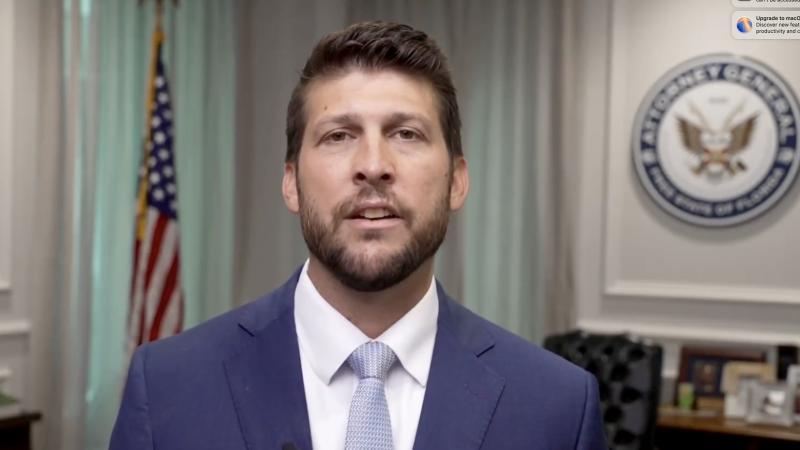After losing $1.7 billion on timber sales over 40 years, Forest Service looks to expand program
"It actually costs taxpayers millions to 'sell' timber that we collectively own, which makes no sense," said Autumn Hanna, vice president of Taxpayers for Common Sense.
The Golden Horseshoe is a weekly designation from Just the News intended to highlight egregious examples of wasteful taxpayer spending by the government. The award is named for the horseshoe-shaped toilet seats for military airplanes that cost the Pentagon a whopping $640 each back in the 1980s.
This week, our award is going to the United States Forest Service (USFS) for losing in excess of $1.7 billion on timber sales in the Alaskan Tongass National Forest over the course of four decades.
The USFS, a branch of the Department of Agriculture, manages 193 million acres of public lands and forests across the nation. The Tongass National Forest is the country's largest national forest, taking up 16.8 million acres in Alaska's southeast region.
According to a new report from Taxpayers for Common Sense, the Forest Service has spent $1.96 billion "in connection with its timber sale program in the Tongass" over 39 years while generating just $227 million in timber sale receipts, yielding a net loss of $1.73 billion in taxpayer dollars.
Over 40 years, the government has lost an average of $44.5 million annually administering the Tongass Forest's timber sales program. The report predicts that at current rates the USFS will lose $190 million over the next five years.
"It actually costs taxpayers millions to 'sell' timber that we collectively own, which makes no sense," said Autumn Hanna, vice president of Taxpayers for Common Sense, in a press release.
The consistent deficit at which the Forest Service runs the Tongass timber program is due in part to timber sales often bringing in less than outlays, which include the extremely high cost of maintaining the 4,000 miles of roads through the Tongass that are almost exclusively used by loggers.
USFS is currently attempting to finalize a new rule that would open up an even greater region of the Tongass National Forest for logging business, which could increase the government's (read: taxpayers') losses even more.
In 2001, the Roadless Rule was enacted, thereby preventing logging from taking place in unroaded areas of the Tongass. The USFS is now trying to exempt the Tongass from that rule, which would create a need for increased government spending on new road construction and maintenance.
"Opening up new areas to timber simply saddles taxpayers with even more construction and maintenance costs and piles onto the Forest Service's existing $3 billion maintenance backlog,” said Hanna.
"Instead of scrapping the original Roadless rule, the Forest Service needs to reform the timber program," she concluded.
















